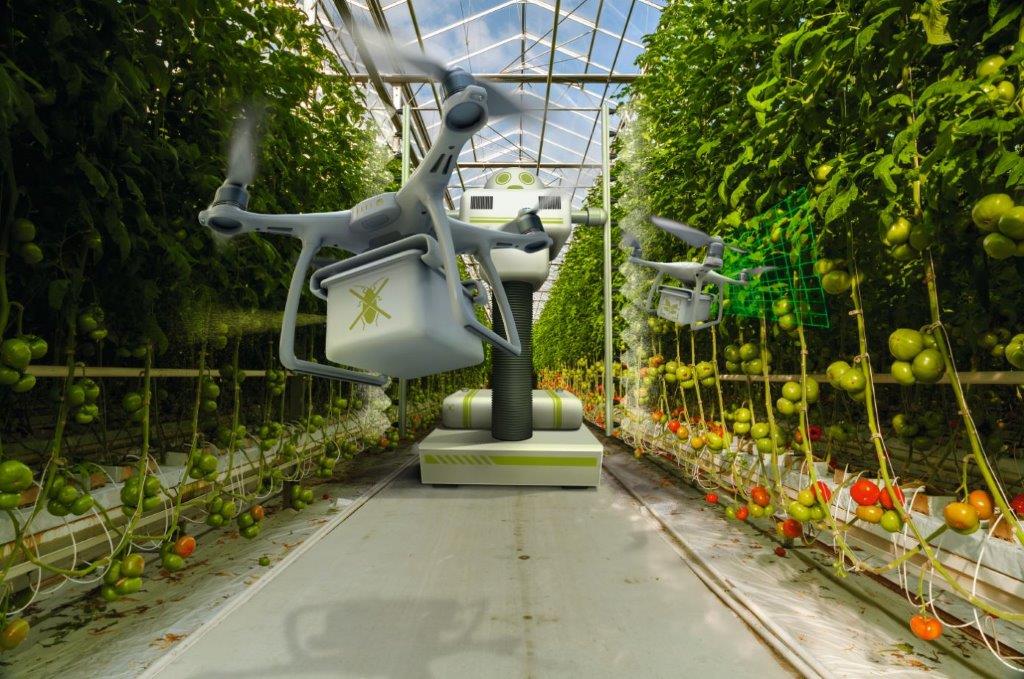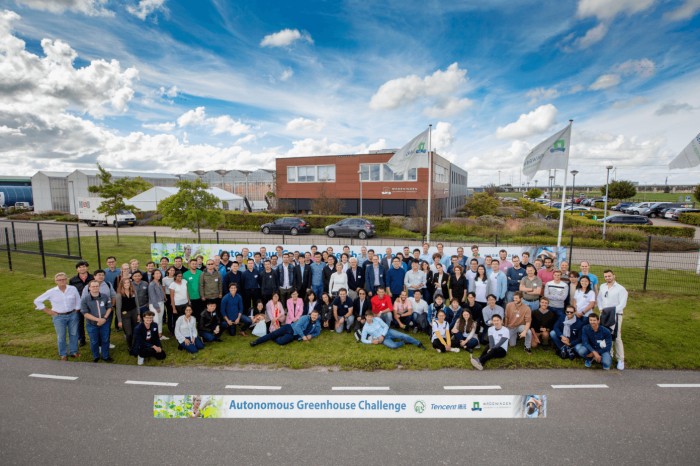
Illustration: Pascal Tieman
Five teams from the Netherlands, South Korea and China have advanced to the final stage of a competition to see who can grow fresh tomatoes in greenhouses remotely using artificial intelligence.
The second Autonomous Greenhouse Challenge, which is organised by Dutch academic powerhouse Wageningen University & Research (WUR) and Chinese multinational conglomerate Tencent, began in September with a 24-hour hackathon involving 21 international teams and more than 200 participants from 26 countries.
The five winning teams – Netherlands-based AiCU, The Automators and Automatoes, China'sIUA.CAAS and Korea'sDigilog – will each be given six months' access to a real greenhouse in the Dutch town of Bleiswijk, where from December onwards they will attempt to control and produce a tomato crop from afar by employing AI algorithms to keep inputs like water, nutrients and energy at sustainable levels.
September's hackathon, held at WUR, saw an international jury award points to each team based on their composition and competence, their application of AI technology and the net profit they made during a virtual tomato production game.
During their pitches, the teamswere given access to a climate model and a tomato crop growth model previously developed by researchers at WUR.
Based on these, the competitors had to determine ideal settings for temperature, light, CO2 concentration and other parameters, such as plant and stem density, before creating algorithms to maintain those required settings.
Each then presented scientific and practical solutions for the automatic, autonomous control of a greenhouse in terms of climate, fertigation and crop growth.
The five finalists are:
AiCU
Staff, researchers and students from Wageningen University, Evertill, NXP Semiconductors, IGMPR Flower, Parks & More, Ibeo Automotive, Amsterdam UMC, CGI, Rotterdam.AI and Port Of Rotterdam-Fordata.
Digilog
Employees, researchers and students from A-net, Hankyong National University, Seoul National University, Samsung Electronics, University of Liege, EZFarm, FARM8, Spacewal and ioCrops
IUA.CAAS
Employees, researchers and students from CAAS, National Agricultural Science & Technology Center, National Engineering Research Center for Information Technology in Agriculture, Sichuan Film and Television University, and Syngenta Seeds BV.
The Automators
Staff and students from Delphy, Wageningen University and 30 MHz.
Automatoes
Employees, researchers and students from Van der Hoeven Horticultural Projects, TU Delft, Keygene and Hoogendoorn Growth Management.
From December onwards, the five groups will attempt to produce a cherry tomato crop in their allocated greenhouse within six months.
The challenge is supported by Axia Seeds, Grodan, Heliospectra, KPN, LetsGrow.com and Tencent.
Last year's competition, which focused on cucumber production, was won a team called Sonoma, consisting of Microsoft employees and students from WUR and the University of Copenhagen.




